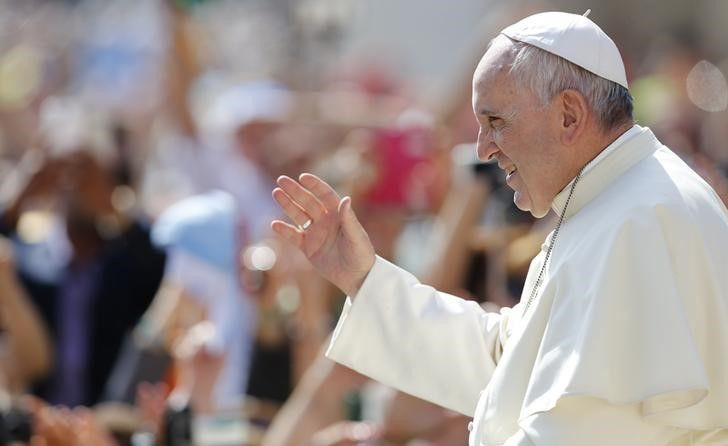Vatican Palestine Statehood: Palestinian Christians 'Uplifted' By Pope Francis' Middle East Moves

The Vatican’s recognition of Palestinian statehood this week has been heralded as a crucial diplomatic victory by Palestinian officials, but to the members of one group the acknowledgement is more than just political. Some Palestinian Christians see the move as an affirmation of their existence by Pope Francis, who they hope will take a much more active role in addressing the plight of a community that has long felt marginalized in discussions of the Palestinian-Israeli conflict.
The timing of the Vatican move to formally recognize Palestine as a state just days before Pope Francis canonizes two Palestinian nuns as saints “is uplifting for Palestinian Christians,” according to Bernard Sabella, associate professor of sociology at Bethlehem University. “It sends the message that there is an entity called the Palestinian people and, among the Palestinian people, there are Palestinian Christians.”
Christians constitute an estimated 2.5 percent of the Palestinian population in the West Bank, a figure that is considerably down from the estimated 18 percent when Israel was established in 1948. Cities such as Bethlehem saw their Christian populations drop from about 85 percent in 1947 to about 20 percent now. The decline is largely a result of mass emigration by the community, mainly attributed to Israeli policies in the territories, including restrictions on freedom of worship and movement.
“We, the Palestinian Christians, suffer along with the rest of Palestinians from occupation and hardships of our economic situation,” Palestinian Orthodox Christian Archbishop Sebastia Theodosios told the Russian state-funded RT in an interview. “Muslims and Christians suffer equally. ... We are all living in the same complicated circumstances, and overcoming the same difficulties.”
While Palestinian Christians share many of the same challenges as do their Muslim compatriots, the rapid decline of their community has added to the marginalization many of them feel. This has only been exacerbated as international attention around the Israeli-Palestinian conflict has tended to frame the longstanding political and territorial dispute as one between Jews and Muslims, with rare acknowledgement of the concerns of Palestinian Christians. “Often we hear that Western Christians are not even aware of our presence,” Bethlehem University’s Sabella said.
As a result, many have hailed recent actions by the Roman Catholic Church under Pope Francis as a significant step in helping to raise awareness about the Palestinian Christian community and its ties to the Holy Land. The pope’s visit to the region last year was welcomed by many as an opportunity to highlight the continued presence of Palestinian Christians in religiously significant cities such as Bethlehem.
Since that visit, the Catholic Church has finalized the sainthood process for the 19th century Palestinian nuns Mariam Bawardy and Marie Alphonsine Ghattas, a move that has been celebrated by the community. Thousands of Palestinian Christians are expected to attend the sainthood ceremony in St. Peter’s Square at the Vatican this Sunday. “This significant event represents an important moment for Palestine, the land of sanctity and virtue, and its people, who are longing for justice, freedom and peace,” the Higher Presidential Committee of Churches’ Affairs in Palestine said in a statement.
It also serves as a means of drawing international attention to their community, according to Sabella, who argued “it would sensitize more people, especially in the West, that there are Palestinian Christians, Arab Christians.”
Beyond the sainthood ceremony’s serving as an international stage for recognition of the Palestinian Christian community, the pope’s attention to the concerns of Palestinians is a welcome sign for those who hope for more urgency in resolving the now-deadlocked talks between the Israelis and the Palestinians. “The Vatican is not just a state. The Vatican represents hundreds of millions of Christians worldwide, including Palestinians, and has vast moral significance,” Husam Zomlot, a senior Palestinian foreign-affairs official, told the New York Times.
This fact has made the message sent by the Catholic Church’s recognition of a Palestinian state and its people’s ties to the Holy Land as represented by the canonization of the nuns more than just symbolic, Sabella said: “It’s like writing on the wall, or, if you prefer, writing on St. Peter’s Square, for Israeli policymakers. The politicians now need to wake up to this reality of a two-state solution and help us all get out of this impasse and terrible conflict in which our two peoples are living.”
© Copyright IBTimes 2024. All rights reserved.






















